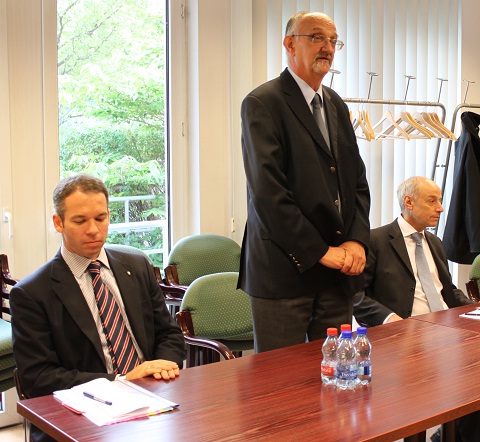At the request of the Government of Hungary, the IAEA agreed to conduct an IPPAS (International Physical Protection Advisory Service) mission to Hungary in May - June 2013.
The Mission composed of inspectors from the US, UK, France, Germany, Australia and Slovenia began their deliberations on May 27th in Hungary. Denis Flory, IAEA Deputy Director General responsible for nuclear safety and security opened the mission in Budapest.
The aim of the IPPAS is to make an assessment of the Hungarian national physical protection regime of nuclear and other radioactive material and associated facilities and activities, as well as for related transports, and to compare the practices in Hungary, with the CPPNM and its 2005 Amendment, the IAEA recommendations (INFCIRC 225 Rev.5) and other relevant Nuclear Security Series (NSS) guidance documents.

The scope of the mission will include the review of the Hungarian nuclear security legislative and regulatory framework for nuclear and other radioactive material and associated facilities, regulatory practices (licensing, inspections and enforcement) and coordination between organizations involved in physical protection. The scope of the mission will also cover a review and evaluation of the physical protection systems in place at the Budapest Training Reactor, the Budapest Research Reactor and the Central Isotope Storage Facility, at the Paks NPP and the Spent Fuel Interim Storage Facility, as well as the assessment of the physical protection arrangements for transport of nuclear and other radioactive material. The interface with nuclear material accountancy procedures and cyber security related issues will also be addressed during the mission.
In order to facilitate the efficient preparation of the international experts for the Hungarian IPPAS mission, the HAEA prepared and now delivered a package of advance documents including a detailed overview of the Hungarian nuclear applications, the legal system and the regulatory regime, as well as the translated versions of the relevant laws, physical protection regulatory guidelines, a sample license and an inspection record.









